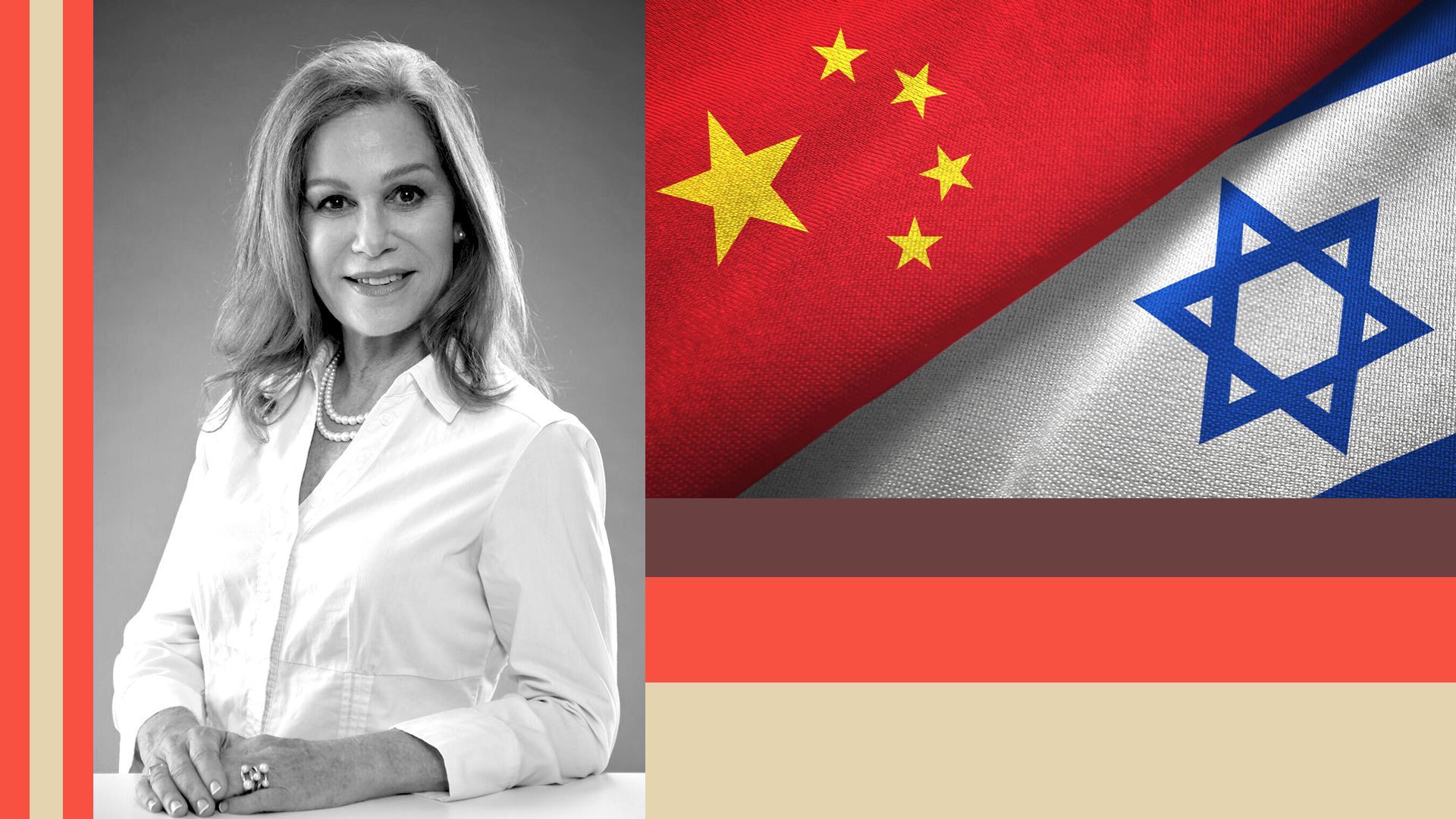SIGNAL's Carice Witte on China's view of the Abraham Accords
Add Axios as your preferred source to
see more of our stories on Google.

Photo illustration: Annelise Capossela/Axios. Photo: Carice Witte
Beijing's initially negative view of the Abraham Accords is improving, the founder of one of Israel's top China policy organizations told Axios in an interview focusing on the Israel-China relationship.
The big picture: Israeli officials want to balance the country's warm ties with China with growing U.S. demands to steer clear of some Chinese tech companies and investments.
Details: Carice Witte founded SIGNAL (Sino-Israel Global Network & Academic Leadership), a Tel Aviv-based policy and academic organization focused on China-Israel relations, in 2011 and serves as its executive director.
- SIGNAL provides policy briefings to government officials and publishes research on Israel-China relations, China's attempts at mediation in global conflicts, Belt and Road investments in Arab countries, and other topics.
- The organization also works with Chinese universities to establish Israel studies programs in China.
On China's role in the Middle East: Chinese officials initially maintained a "negative attitude" toward the Abraham Accords, a U.S.-brokered agreement that normalized diplomatic relations between Israel and the United Arab Emirates and Bahrain, Witte said.
- "There were indications that they considered it a U.S. tool to strengthen its position in the Middle East; some Chinese went so far as to argue that the accords were an effort to drive China out of the region," she said. Analysts have noted the agreement paved the way for Emirati investment in Israeli tech and infrastructure, giving Chinese companies more competition.
- But that view has changed over the past few months as the agreements seem to have contributed to Middle East stability, which Beijing views as a positive trend, Witte said, citing conversations she has had with Chinese policy advisers.
On Israel's lack of China experts in the national security space: Israeli security has long focused on threats from its neighbors and viewed growing ties with China through a purely business lens.
- "As our relations with China developed, the government lacked the vision to support programs that would encourage an understanding of modern China. This stems from lack of understanding that China has a unique statecraft and that in order to deal with China, you must study and understand China," Witte said.
What to watch: "Israel has not yet internalized the U.S. perspective on the long-term challenges posed by China’s unique statecraft or its interest in reshaping global governance," Witte said.
- "But the good news is that Israel is now conducting a foreign policy review focusing on its relations with China and changes can be expected."
- The new Israeli government has signaled it will take U.S. concerns seriously and increasingly view China through a national security lens.
